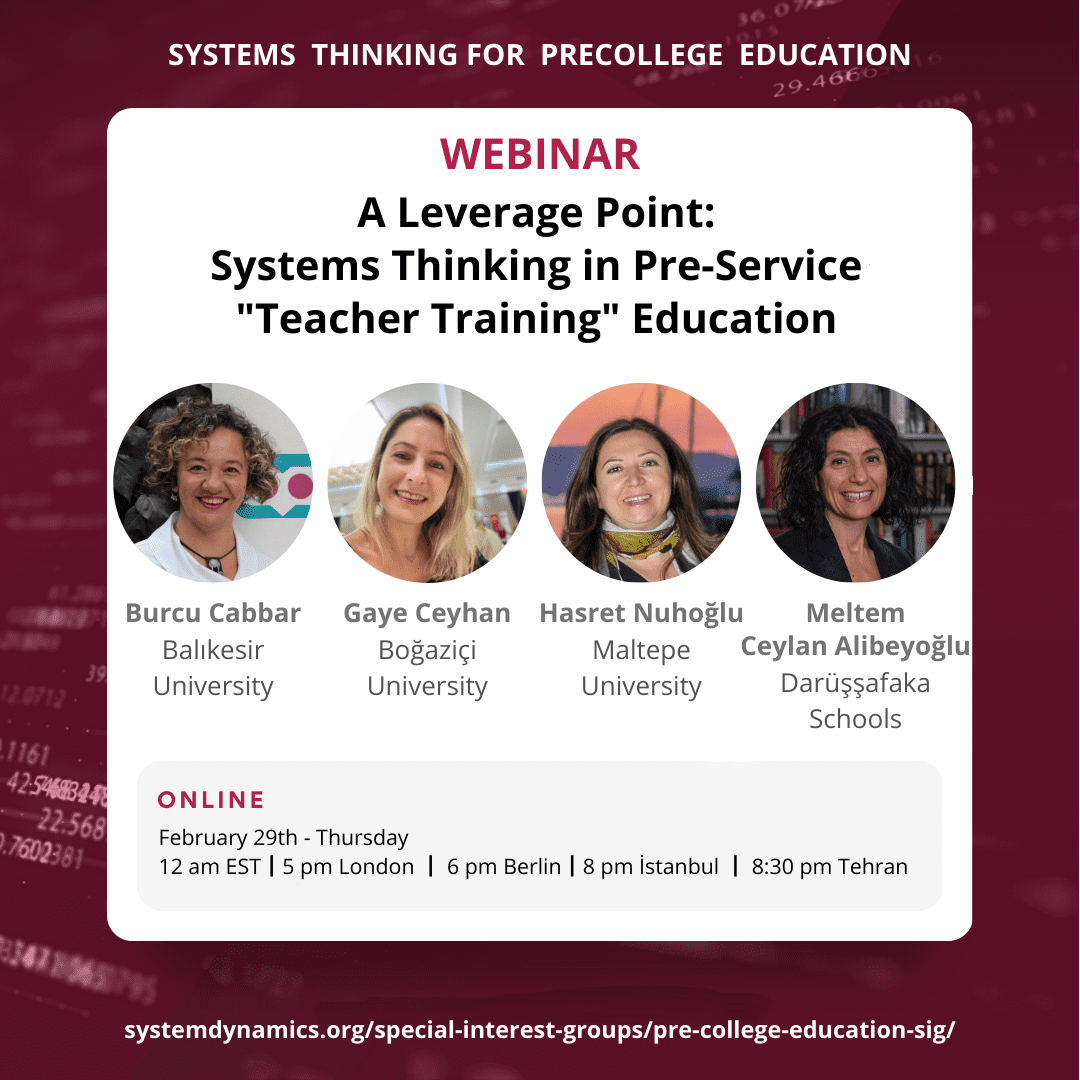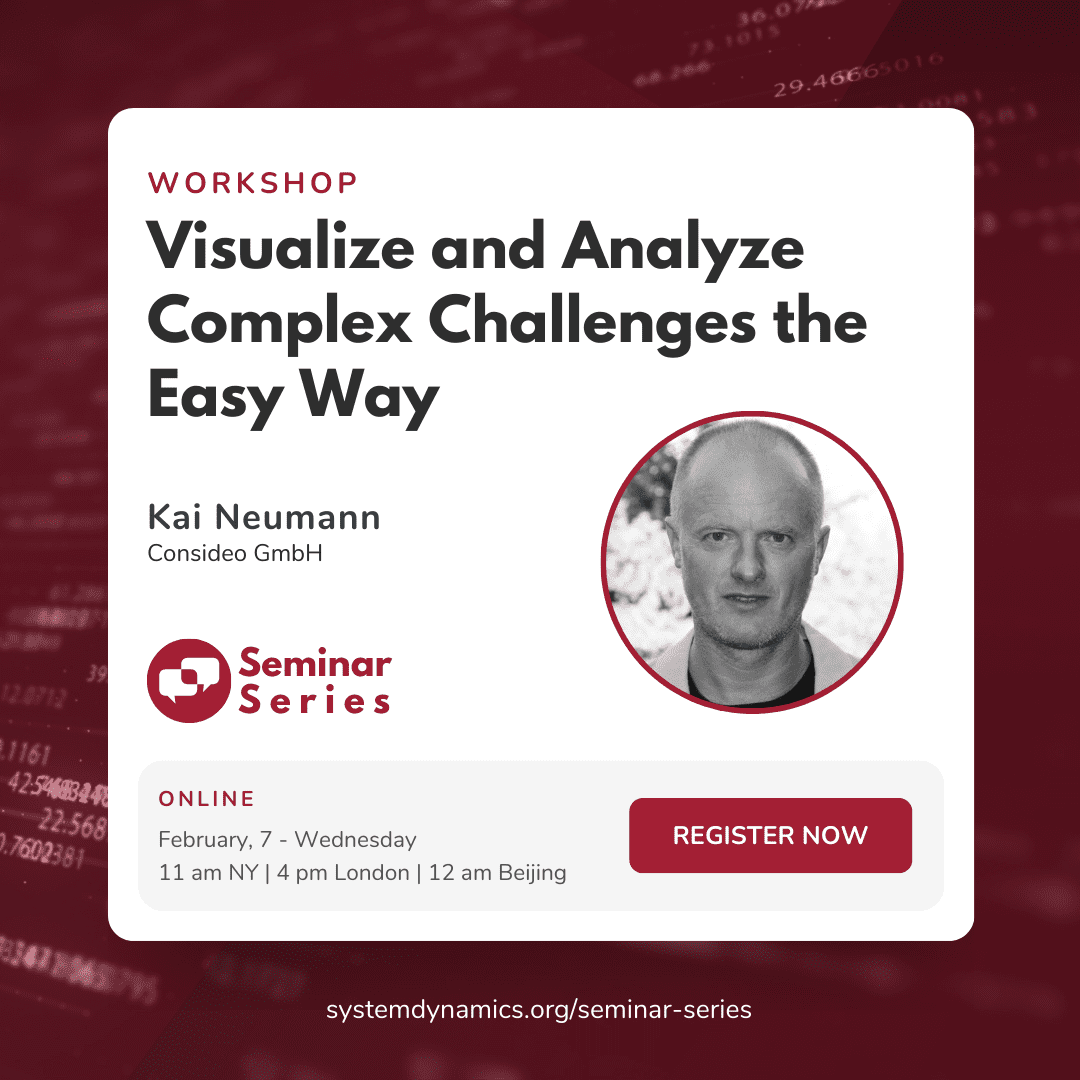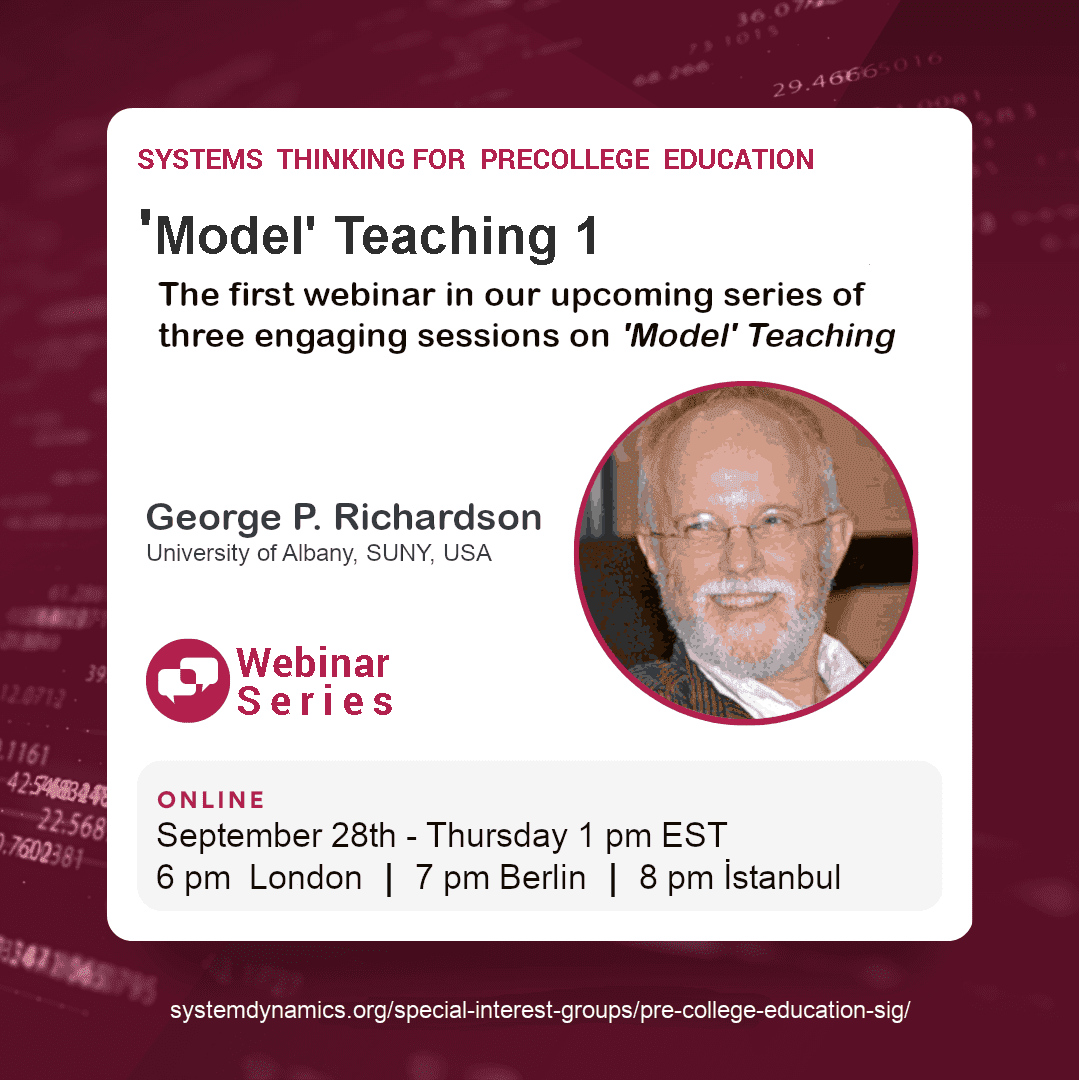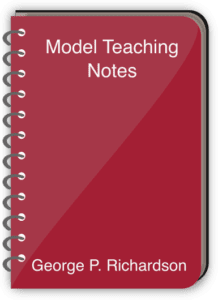Leveraging Dynamic Business Models for Enterprise Architecture
April 18 at 11 am NY | 4 pm London | 11 pm Beijing | Time Converter
This seminar is part of our special series System Dynamics for Business Innovation with Kim Warren. A series of nine webinars offering a deep dive into the application of System dynamics in Business. The sessions will explore strategic modeling techniques and their transformative impact across different business domains, from strategic management to IT systems planning and environmental impact. This series will reveal the potential of System Dynamics as a powerful tool for business innovation and complex decision-making.
Session 4
Leveraging Dynamic Business Models for Enterprise Architecture
Creating “Enterprise Architectures” (EAs) has long been a solid basis for developing organizations’ IT strategies and plans. But qualitative EAs can be more reliable and powerful if supported by quantitative dynamic business models (DBMs). We will explore how DBMs can enhance the alignment of IT systems with business goals, improve resource allocation, and facilitate effective change management in the technological landscape of an organization.
Learning Outcomes
- For newcomers to Enterprise Architectures, understand the essentials of how their process models support orgnizations’ IT strategies and plans.
- Understand the differences – and strong connections – between EAs’ process models and quantified DBMs.
- See how DBMs’ inherent validation can make building EAs faster and more reliable, and enhance implementation of IT systems plans.
Target Audience
- IT professionals and systems architects.
- Business analysts and consultants concerned with IT’s support for strategy and performance.
- Managers overseeing IT infrastructure and development.
- Students and academics in business fields.
This webinar is ideal for those looking to bridge the gap between business strategy and IT system architecture, leveraging dynamic modeling for alignment and efficiency.
Certificate of Attendance
About the Presenter
Kim Warren is an accomplished strategist with a wealth of experience in the business world. He spent 10 years in senior strategy roles, including as Retail Strategy Director at Whitbread PLC. Warren then transitioned to academia, teaching Strategic Management at London Business School for two decades. During his tenure, he developed a keen interest in System Dynamics, finding traditional strategy tools insufficient for modern business challenges. This led him to embrace and adapt System Dynamics, creating the Strategy Dynamics method. Warren’s method focuses on designing and managing business systems dynamically to adapt to changing markets and internal business conditions. He has authored influential books on the subject, including “Competitive Strategy Dynamics” and “Strategic Management Dynamics,” and has been recognized with the prestigious Jay Wright Forrester Award from the International System Dynamics Society, where he also served as president in 2013. Warren, along with his partner Christina Spencer, has developed a range of learning materials and courses to disseminate the Strategy Dynamics method, utilizing the Silico online modeling app to support this approach.
For more detailed information, you can visit his website here.
Up Next
A Leverage Point: Systems Thinking in Pre-Service “Teacher Training” Education
Dear Colleagues,
We are excited to invite you to our free webinar entitled ‘A Leverage Point: Systems Thinking in Pre-Service “Teacher Training” Education’ on Thursday, February 29, at 12:00 noon EST.
We consider courses that train pre-service precollege teachers to be one of the most critical places impacting in the formation of system citizens. The professors teaching these courses ultimately determine the criteria for topics and methods to be included within the curriculum and the criteria for student academic success.
The infusion of systems thinking in courses that train pre-service precollege teachers has the potential to be one of the most influential points on Donella Meadows’ list of places to intervene in a system, that is, the purpose of the system.
In this webinar, the experiences gained from the experiments carried out in precollege pre-service teacher training courses in Türkiye since 2019, the work done and plans for the future will be shared and a collaborative discussion environment will ensue where the presenters offer suggestions for those who want to undertake similar projects.
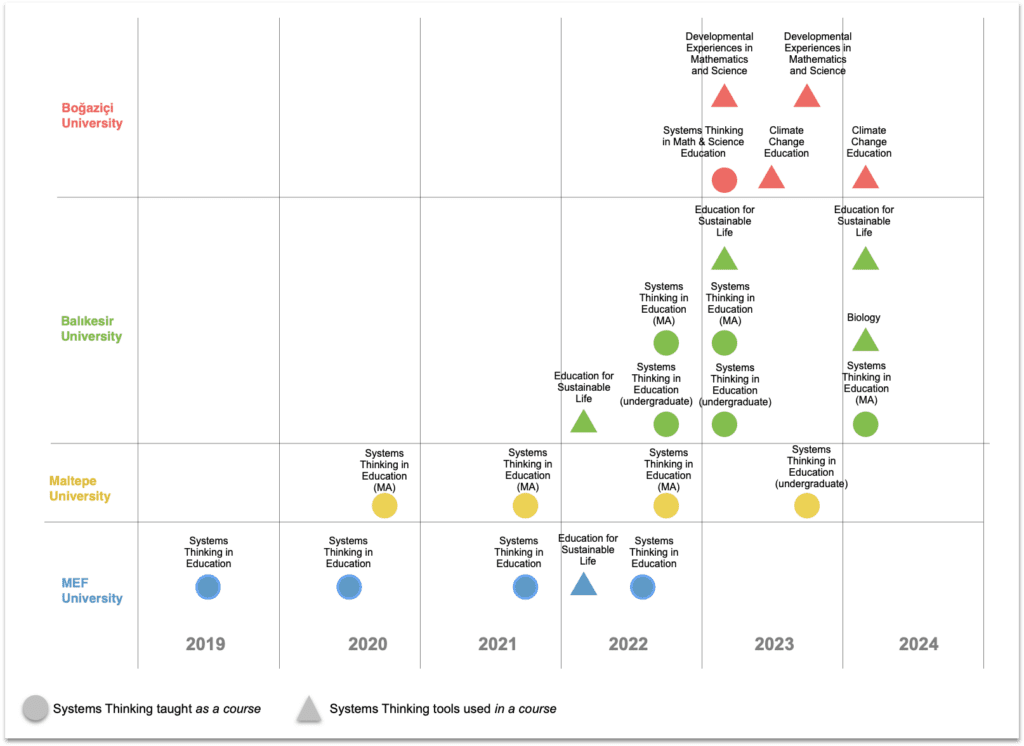 Timeline of courses where systems thinking is/was taught as a separate course (circle) or used as a tool in another course (triangle) by professors of education in Türkiye. Timeline of courses where systems thinking is/was taught as a separate course (circle) or used as a tool in another course (triangle) by professors of education in Türkiye. |
We strongly encourage you to come prepared with questions, contributions, suggestions, and ideas. Your insights will not only enrich the discussions but also provide a platform for collaborative learning and exploration.
We look forward to your active participation in this webinar. Let’s explore the world of systems dynamics together and uncover innovative ways to enhance education.
Best regards – the SIG leadership team.
| Diana Fisher Ülkem Yararbaş Burcu Güngör Cabbar Chang-Kwon (Benjamin) Chung Donald DeLand Ed Gallaher Emre Göktepe Gaye D. Ceyhan |
Matilde (Lin Ya) Hong Meltem C. Alibeyoğlu Prof. Dr. Min-Ren Yan Özgün Kurt Çetinkaya Sena Yıldız Değirmenci Steven Roderick Şebnem F. Gezer |
Dynamic Business Models for Dealing with Competition
March 20 at 11 am NY | 3 pm London | 11 pm Beijing | Time Converter
This seminar is part of our special series System Dynamics for Business Innovation with Kim Warren. A series of nine webinars offering a deep dive into the application of System dynamics in Business. The sessions will explore strategic modeling techniques and their transformative impact across different business domains, from strategic management to IT systems planning and environmental impact. This series will reveal the potential of System Dynamics as a powerful tool for business innovation and complex decision-making.
Session 3
Dynamic Business Models for Dealing with Competition
Overview
This session will introduce participants to the use of dynamic business models (DBMs) for understanding and dealing with competitive challenges and opportunities. The session will explain exactly how competition plays out over time, through three standard mechanisms – mechanisms that are easily explored with quantified diagramming and modeled in detail with digital-twin business models.
Learning Outcomes
- Understand, with a case example, the three standard mechanisms driving the outcomes of competitive interactions.
- Appreciate how dynamic business models enable competitive strategies to be explored, under a range of scenarios.
- Understand the differences in how competition works in different markets and at different stages of a market’s life.
Target Audience
- Business professionals seeking powerful new knowledge in competitive strategy.
- Managers and executives looking to understand and take control of both their general competitive strategy and of specific competitive initiatives.
- Students and academics interested in business strategy and competitive analysis.
This webinar is designed to provide an introduction to dynamic business modeling in the context of business competition, suitable for those beginning to explore these concepts.
Certificate of Attendance
About the Presenter
Kim Warren is an accomplished strategist with a wealth of experience in the business world. He spent 10 years in senior strategy roles, including as Retail Strategy Director at Whitbread PLC. Warren then transitioned to academia, teaching Strategic Management at London Business School for two decades. During his tenure, he developed a keen interest in System Dynamics, finding traditional strategy tools insufficient for modern business challenges. This led him to embrace and adapt System Dynamics, creating the Strategy Dynamics method. Warren’s method focuses on designing and managing business systems dynamically to adapt to changing markets and internal business conditions. He has authored influential books on the subject, including “Competitive Strategy Dynamics” and “Strategic Management Dynamics,” and has been recognized with the prestigious Jay Wright Forrester Award from the International System Dynamics Society, where he also served as president in 2013. Warren, along with his partner Christina Spencer, has developed a range of learning materials and courses to disseminate the Strategy Dynamics method, utilizing the Silico online modeling app to support this approach.
For more detailed information, you can visit his website here.
Up Next
Dynamic Business Models for Strategic Management Accounting
Feb, 28 at 11 am NY | 4 pm London | 12 am Beijing | Time Converter
This seminar is part of our special series System Dynamics for Business Innovation with Kim Warren. A series of nine webinars offering a deep dive into the application of System dynamics in Business. The sessions will explore strategic modeling techniques and their transformative impact across different business domains, from strategic management to IT systems planning and environmental impact. This series will reveal the potential of System Dynamics as a powerful tool for business innovation and complex decision-making.
Session 2
Dynamic Business Models for Strategic Management Accounting
Overview
This session explains the aims of strategic management accounting (SMA) – giving senior leaders insight about how a business develops and performs, beyond just the financials – and the challenges faced by those trying to do so. This seminar will explain that strategic management covers many more responsibilities than simply building the business plan. It will show that Dynamic Business Models can very largely fulfill those needs, in an efficient, reliable and transparent manner. DBMs provide exactly the joined-up view of a business and financials that leaders say they want. (The session is supported by two substantial practitioner articles)
Learning Outcomes
- Understand the aims of strategic management accounting.
- See how DBMs transform the contribution that SMA can offer.
- Learn to integrate dynamic modeling of a business system’s behaviour with the financial outcomes it generates.
Target Audience
- Accountants seeking to upgrade their contribution to organizations’ strategic performance.
- Business strategists and consultants needing to demonstrate both strong business development and financial performance.
- Academic professionals and students in business, accounting, and finance.
- Business professionals wanting to integrate their strategic management efforts and financial outcomes.
This session is designed to provide practical skills and theoretical knowledge, making it valuable for professionals aiming to leverage dynamic modeling in strategic management accounting.
Certificate of Attendance
About the Presenter
Kim Warren is an accomplished strategist with a wealth of experience in the business world. He spent 10 years in senior strategy roles, including as Retail Strategy Director at Whitbread PLC. Warren then transitioned to academia, teaching Strategic Management at London Business School for two decades. During his tenure, he developed a keen interest in System Dynamics, finding traditional strategy tools insufficient for modern business challenges. This led him to embrace and adapt System Dynamics, creating the Strategy Dynamics method. Warren’s method focuses on designing and managing business systems dynamically to adapt to changing markets and internal business conditions. He has authored influential books on the subject, including “Competitive Strategy Dynamics” and “Strategic Management Dynamics,” and has been recognized with the prestigious Jay Wright Forrester Award from the International System Dynamics Society, where he also served as president in 2013. Warren, along with his partner Christina Spencer, has developed a range of learning materials and courses to disseminate the Strategy Dynamics method, utilizing the Silico online modeling app to support this approach.
For more detailed information, you can visit his website here.
Up Next
How Did En-ROADS Get 755,000 users? Lessons on Modeling, Interface Design, and Facilitation
May, 8 at 11 am NY | 4 pm London | 11 pm Beijing | Time Converter
How Did En-ROADS Get 755,000 Users? Lessons on Modeling, Interface Design, and Facilitation
In this participatory webinar, Drew Jones of Climate Interactive will share insights on how to create a System Dynamics model and online simulator that will succeed at improving mental models and system performance at scale. The teams at Climate Interactive, MIT Sloan, and Ventana Systems designed its System Dynamics models C-ROADS and En-ROADS with the goal of improving the understanding of climate policy choices amongst decision-makers around the world, leading to deliberate strategies in three major areas: 1) modeling, 2) interface/UX design, and 3) facilitation, workshop design, game creation, training, and user support. This webinar will cover the design decisions made over the ~30 years of the project, generalizing the more universal insights for any system dynamics project.
About the Presenter
Andrew (Drew) Jones is Co-Founder and Co-Director of Climate Interactive. An expert on international climate and energy issues, his quotes and data stories appear in the New York Times, The Washington Post, and other media. Jones and his team at CI and MIT Sloan developed the climate simulations used by John Kerry and others to secure the 2014 bi-lateral U.S.-China deal that set up the Paris Agreement, as well as currently in the White House and Congress. Trained in System Dynamics modeling at Dartmouth College and MIT, Jones has worked at Rocky Mountain Institute and was a protégé of Dana Meadows. Jones co-accepted the System Dynamics Society’s award for the best real-world application of modeling. He won Dartmouth College’s Ray W. Smith award for the most significant contribution to the status of the College.
Special Guests
Florian Kapmeier is Professor of Strategy at ESB Business School at Reutlingen University, Germany. He received his doctorate from the University of Stuttgart on “Interorganizational Learning in Learning Alliances”. He has strengthened his academic profile with research visits at MIT Sloan School of Management (Cambridge, USA), McGill University (Montréal, Canada), University of Lugano (Switzerland), and Emlyon Business School (Lyon, France). For his research and teaching activities, he links the System Dynamics methodology with empirical research on theory development and testing, focusing on organizational aspects of the understanding of complexity, increasingly addressing environmental sustainability issues. He works closely with the Climate Interactive to raise awareness of the consequences of climate change, using the suite of Climate Interactive’s simulation models. Florian has collaborated closely with Climate Interactive to develop the En-ROADS Climate Workshop, the Climate Action Simulation Game, and resources for the World Climate Simulation. In addition, he has helped translate both event materials and website resources for the World Climate Simulation. Florian has facilitated numerous En-ROADS and World Climate events with groups between 12-60+ people since 2014, from high-school and university students to corporate and political policy makers.
Workshop: Visualize and Analyze Complex Challenges the Easy Way
February, 7 at 11 am NY | 4 pm London | 12 am Beijing | Time Converter
Workshop: Visualize and Analyze Complex Challenges the Easy Way
Facing challenges that involve multiple interacting factors requires a methodical approach to visualize and analyze these interconnections. Qualitative modeling provides a straightforward way to map out cause-and-effect relationships. This approach is adaptable, suitable for use in workshops, collaborative models, or individual analysis.
This workshop introduces the user-friendly Consideo iModeler tool to assign weights to connections without the need for complex formulas. Utilizing the Insight Matrix, participants can easily identify key factors that either contribute to or hinder progress towards their objectives.
The session delves into the scientific principles underpinning this qualitative approach, explaining how results are derived. Additionally, it offers a comparative analysis of qualitative and quantitative models, drawing on real-world project examples. This seminar is designed to equip you with the tools to make informed decisions in complex scenarios.
About the Presenter
About Consideo iModeler
Consideo iModeler is a cutting-edge software tool designed to visualize and analyze complex situations, making it easier for users to plan, make decisions, and communicate more effectively. This software stands out for its unique Insight Matrix feature, which provides a revolutionary way to handle complexity. It allows both qualitative and quantitative modeling, including System Dynamics for scenario modeling.
Systems Thinking for Sustainability: A Proposal for International Cooperation
January, 17 at 11 am NY | 4 pm London | 12 am Beijing | Time Converter
Systems Thinking for Sustainability: A Proposal for International Cooperation.
The international cooperation proposal “System Thinking for Sustainability” is an initiative led by the Autonomous University of Bucaramanga (UNAB) whose fundamental objective is to address current challenges in favor of global sustainability. It is based on the application of Systems Thinking, a comprehensive approach that seeks to understand and solve complex problems from a holistic and interconnected perspective.
This proposal focuses on promoting sustainable development through collaboration and promoting innovative solutions. Through the analysis of complex systems and the identification of interdependent relationships, it seeks to find strategies to address contemporary dilemmas in key areas such as energy transition, organizational and institutional change for sustainability, water management, cybersecurity and the promotion of education and scientific vocations.
A look at the problems of dissemination of systems thinking: Recognizing the challenges of effectively disseminating Systems Thinking, the proposal focuses on identifying strategies to overcome dissemination barriers and promote a broader and deeper understanding of this approach, promoting its adoption and application in various areas and sectors.
An organizational proposal for coordination to improve impact: The initiative focuses on establishing an effective organizational structure that facilitates coordination between various actors interested in Systems Thinking. It seeks to enhance the impact of this approach by creating collaborative platforms, knowledge-sharing networks and strategies to promote its practical application in relevant contexts.
Development of educational tools and resources: The creation and dissemination of educational materials and practical tools that allow the understanding and effective application of Systems Thinking are sought. This includes the development of digital resources, methodological guides and training programs to encourage greater adoption and understanding of this approach.
About the Presenter
Integrating Systems Thinking into Science Education and Curriculum
April 24, 2024 at 9 am NY | 2 pm London | 9 pm Beijing | Time Converter
Integrating Systems Thinking into Science Education and Curriculum
For teaching and learning science through rich-contexts and complex real-world scenarios, application of systems thinking approaches offers convenient platform. This framework can be well integrated into problem-based learning, learning from case studies, project-based approaches etc. Compared to reductionist approach, systems approach will also facilitate students’ holistic and interdisciplinary understanding about a complex problem. Along these lines, this seminar focuses to explore the scope of applying systems thinking concepts into science teaching and curriculum with a focus in the context of chemistry teaching and learning.
About the Presenter
Dr. Bellam Sreenivasulu, Senior Lecturer and Resident Fellow at the Residential College-4 (RC4), National University of Singapore (NUS), holds a Ph.D. in Chemistry and a postdoctoral fellowship from the Institute of Chemical and Engineering Sciences (ASTAR, ICES). He has extensive teaching experience in chemistry and applied chemistry such as supramolecular chemistry. Currently, at RC4, Dr. Bellam specializes in systems thinking and system dynamics (ST&SD) curriculum with a focus on modeling real-world complex problems in relation to energy systems- sustainable energy, renewable energy, carbon emissions etc. He also teaches topics such as ‘Sleep Health for Holistic Wellbeing’ applying systems thinking approach. His educational research interests include chemistry education, ST&SD education exploring students’ learning and misconceptions in these areas.
‘Model’ Teaching 1
We are excited to invite you to the first webinar in our upcoming series of three engaging sessions on ‘Model’ Teaching on Thursday, September 28, at 1:00 pm EST.
George Richardson, a world-class system dynamicist and educator, will guide participants through the core concepts and practical implications of systems dynamics model teaching. His extensive experience, particularly in working with K-12 teachers, ensures that the content will be both relevant and valuable for educators across different levels.
This series aims to provide:
- a starting place for people new to the art of teaching modeling,
- a source of ideas for teachers looking to advance what they’ve been doing,
- for experts in these arts who might enjoy a comparative look,
- some exchanges on pedagogy, which would benefit us all.
Before the first session of the series, we kindly ask participants to familiarize themselves with a 30-page set of notes prior to the webinar. These notes will serve as a foundation for the discussions, allowing you to contemplate how the models presented can be adapted to your specific settings or situations.
Please click here or on the image at below to access the notes.
The notes are a compilation of three papers previously published in System Dynamics Review. You can access the original articles using the links below:
- “Model” teaching:
https://onlinelibrary.wiley.com/doi/10.1002/sdr.1512 - “Model” teaching II: Examples for the early stages:
https://onlinelibrary.wiley.com/doi/10.1002/sdr.1520 - “Model” teaching III: Examples for the later stages:
https://onlinelibrary.wiley.com/doi/10.1002/sdr.1524
The workshop format of the webinar is designed to encourage active participation. We highly encourage you to come prepared with questions, contributions, suggestions, and ideas. Your insights will not only enrich the discussions but also provide a platform for collaborative learning and exploration.
We look forward to your active participation in this enlightening webinar series. Let’s explore the world of systems dynamics together and uncover innovative ways to enhance education.
Best regards – the SIG leadership team.
George P. Richardson
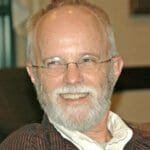 George P. Richardson is Professor Emeritus of public administration, public policy, and information science at the Rockefeller College of Public Affairs and Policy at the State University of New York at Albany. He earned his doctorate under Jay Forrester at MIT and is the author of Introduction to System Dynamics Modeling with DYNAMO (1981) and Feedback Thought in Social Science and Systems Theory (1991), both of which were honored with the System Dynamics Society’s Forrester Award.
George P. Richardson is Professor Emeritus of public administration, public policy, and information science at the Rockefeller College of Public Affairs and Policy at the State University of New York at Albany. He earned his doctorate under Jay Forrester at MIT and is the author of Introduction to System Dynamics Modeling with DYNAMO (1981) and Feedback Thought in Social Science and Systems Theory (1991), both of which were honored with the System Dynamics Society’s Forrester Award.
George has played and sung acoustic folk music for sixty years. He has ridden a motorcycle cross-country from NY State to Seattle, the Olympic Peninsula, and down to Portland. He’s also ridden round-trip the fabled Dalton “Highway” from Calgary to Deadhorse, AK, and Prudhoe Bay, 300 miles north of the Arctic Circle. Both trips took less than sixty years.
The Pre-College SIG Webinar Series consists of periodic online presentations on K-12 education topics for Systems Thinking and System Dynamics communities. These virtual presentations cover a wide range of topics on K-12 education and bring together academics, teachers, and students for learning and lively discussion. Our webinars aim to promote and improve skills to effectively apply systems thinking and dynamic computer simulation in K-12 education.
All webinars and recordings are free for both SDS members and the general public. Please visit SDS Pre-College Education SIG page for previous webinar recordings.
Economics in K-12 Education Roundtable
We would like to invite you to attend our free webinar entitled Economics in K-12 Education Roundtable on Thursday, May 25, at 11:00 am EST. Our panel participants will be:
Murat Gökalp – Teacher of Mathematics and Economics in DP & MYP and TOK, Shanghai Community International School, Shanghai, China
David Wheat – Emeritus Professor of Economics and SD, University of Bergen, Norway
Erda Gerçek – Senior Lecturer in Economics and Strategic Thinking at Koç University, İstanbul, Türkiye
Khalid Saeed – Professor of Economics and System Dynamics at WPI, Worcester, Massachusetts, USA
We will discuss some the following questions:
- What might be the fundamental stocks in an economy?
- What might be the fundamental flows and flow cycles in an economy?
- What might be the fundamental causal loops in an economy?
- Which economic theories should be introduced, in which order?
- Can a historical approach (starting from hunter gatherers) be used in teaching economics?
- How can value, money, price, fiat be taught?
- Which approach should be used when teaching economics? What are the pros and cons of each approach?
- from micro to macro
- from macro to micro
- in paralel – a spiral education
- Should modeling accounting identities be introduced? If yes, how?
- Alternatively, Should Accounting System Dynamics be introduced? If yes, how?
- How should interconnectedness of economy and ecology be taught?
- circular economy, green economy, sustainability, new economy…
- What is or should be the goal of an economic system?
- What is or should be the function of an economic system?
We hope you will join us for this webinar.


